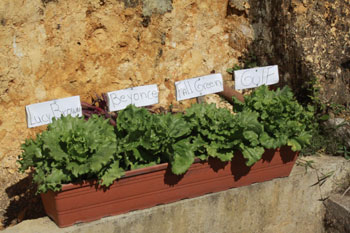FAO, IICA and ECLAC document summarizes the conclusions of four dialogues held in the Southern Cone, Central America, the Caribbean and Mexico to discuss ways to promote agriculture and make those who earn their livelihoods in agriculture less vulnerable.

Santiago, Chile, April 19, 2012 The actions taken by the countries of Latin America and the Caribbean to lessen the impact of rising and volatile international prices for food, especially on the poor, are analyzed in the latest issue of the FAO, IICA and ECLAC joint newsletter.
The document is the result of four dialogues held in Chile, El Salvador, Trinidad and Tobago and Mexico to discuss the effects of such prices in the region.
According to Salomon Salcedo, Senior Policy Officer with the United Nations Food and Agriculture Organization (FAO), “In general terms, price volatility discourages farmers, investors and banks from investing in agriculture; reduces the effectiveness of allocating resources from public and private sources; and creates political instability, which leads to decision-making that can adversely affect economic growth in the long term.”
According to Victor M. Villalobos, Director General of the Inter-American Institute for Cooperation on Agriculture (IICA), efforts aimed at supporting family agriculture and linking small-scale farmers to markets are fundamental not only to alleviating poverty, but also to increasing food and nutritional security in Latin America and the Caribbean.
“In order to produce more with fewer resources, given the challenges posed by climate change, it is necessary to innovate, which will require more investment and stronger institutions,” he stated.
During the dialogues, the countries underscored the need to increase transparency and competition in food markets, and to take greater advantage of the free trade area for foods in the region.
They also attached high priority to making consumers less vulnerable to prices shocks and developing a regional approach to addressing the issue of food security, and called for regional cooperation in the area of social protection programs, food, food banks and social protection networks.
On the subject of financing for agriculture, especially family agriculture, the need for institutions that can provide commercial credit, risk capital and insurance to cover losses is vital.
Multiple impacts of rising, volatile prices
According to the World Bank, since June 2010, 44 million more persons are living in extreme poverty in low to middle income countries because of rising food prices.
At the macroeconomic level, since food makes up a major part of the family basket of goods and services, the volatility of food prices impacts inflation. It also affects the trade balance, especially in net food importing countries, and the exchange rate in the case of countries in which food is a major component of their exports and fiscal balance.
With respect to consumers, higher food prices have increased the number of people living below the poverty line and in a situation of food insecurity, and have contributed to chronic child malnutrition, which may be devastating in the long term.
Higher food prices can translate into higher profit for famers. However, since most farmers in Latin America and the Caribbean are small-scale farmers, many will not be able, without technical and institutional support, to take advantage of higher prices due to asymmetries in the transmission of input and product prices.
For further information:
ECLAC/FAO/IICA Newsletter (Spanish only): The response of Latin America and the Caribbean to higher and volatile food prices and opportunities for regional cooperation
FAO Regional Office Rodrigo Flores
Social Communication, IICA: Patricia León











